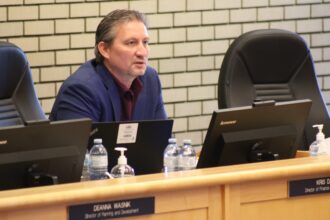In the quiet aftermath of a professional hockey career cut tragically short, an untold story of compassion and vision has emerged from British Columbia’s hockey community. Before his untimely death, former NHL enforcer Stephen Peat had been developing plans for a charity hockey game aimed at supporting mental health initiatives for athletes transitioning away from professional sports—a cause deeply personal to the Surrey-born player who battled his own significant challenges after leaving the ice.
“Stephen was passionate about creating something meaningful that would help others avoid the struggles he faced,” revealed Michael Peat, Stephen’s father, in an exclusive interview. “The charity game was going to be his way of turning his painful experiences into something positive for the hockey community.”
The proposed event, tentatively named “Beyond the Boards: Mental Health Matters,” would have brought together former professional players to raise awareness about the often-overlooked mental health challenges that follow when the stadium lights dim on athletic careers. According to family members, Peat had already begun reaching out to former teammates and rivals from his Washington Capitals days before his passing in May 2022 at age 42.
Mental health professionals who work with former athletes point to alarming statistics that underscore the importance of Peat’s vision. Studies from the Canadian Mental Health Association show that professional athletes experience depression at rates significantly higher than the general population following career transitions, with former contact sport athletes facing particularly elevated risks.
“The abrupt identity shift from being a celebrated athlete to suddenly facing an uncertain future creates profound psychological challenges,” explains Dr. Miranda Chen, sports psychologist at the University of British Columbia. “Players like Stephen, whose careers involved physical sacrifice and fighting, often face additional burdens from traumatic brain injuries that compound these difficulties.”
Peat’s NHL career spanned 130 games between 2001 and 2006, primarily with the Washington Capitals, where he embraced the physically demanding enforcer role. After retirement, he faced a cascade of personal challenges including homelessness, substance abuse issues, and the neurological effects of multiple concussions sustained during his playing days.
His family now hopes to honor his memory by bringing his charity vision to life. Working with the BC Hockey League and several former NHL players from the region, they aim to host the inaugural memorial game in Surrey next spring.
“Stephen knew firsthand how devastating the transition away from hockey can be when you don’t have proper support systems,” said Carter Wilson, a childhood friend and organizing committee member. “This isn’t just about honoring his memory—it’s about creating the resource he wished he’d had when he needed it most.”
The initiative has already gained significant community support, with several business sponsors committing resources and local mental health organizations pledging services for the cause. Organizers plan to establish a permanent fund that will provide counseling services, career transition support, and concussion aftercare specifically designed for athletes facing post-career challenges.
As the hockey world continues to reckon with the human cost of its physical demands, particularly around fighting and head injuries, Peat’s posthumous initiative represents a poignant reminder of the individuals behind the statistics. His story raises important questions about responsibility and care within professional sports.
As plans for the memorial charity game move forward, one question lingers in the minds of those carrying Stephen Peat’s vision forward: How many other athletes might we save if we build the mental health bridges necessary for them to cross successfully from one life chapter to the next?
























